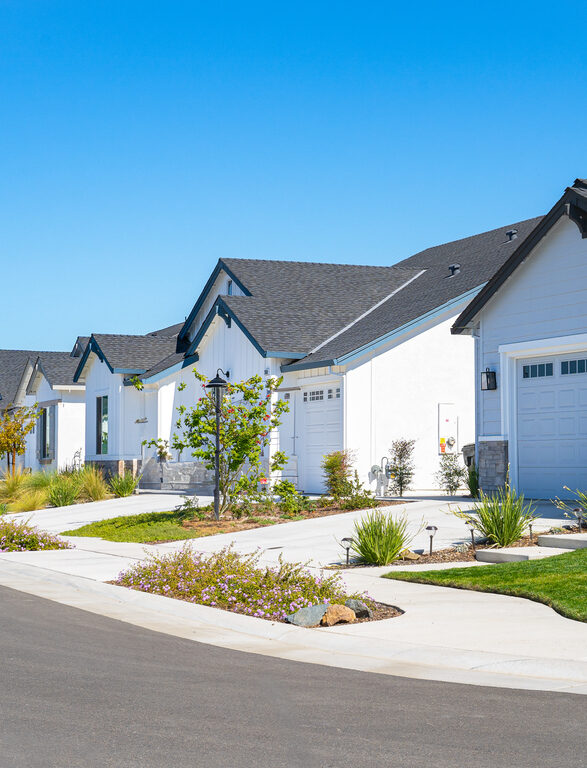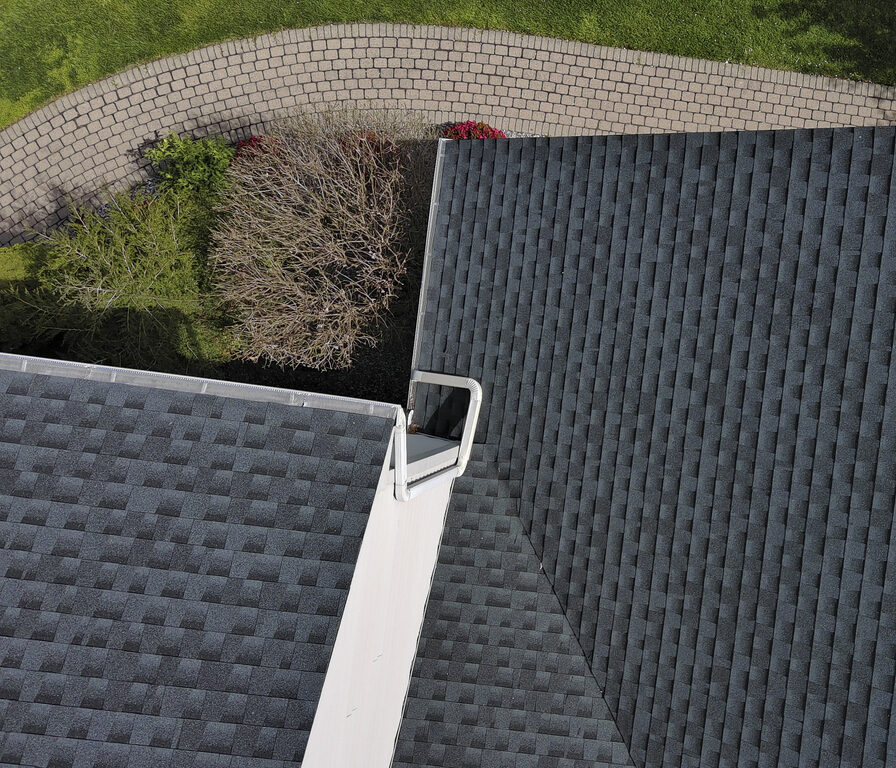
Living in a homeowners association (HOA) community can be a double-edged sword.
Sure, there are perks—neat lawns, shared amenities, neighborhood consistency. But when rules start feeling more like control, and the HOA board acts more like a private government (or dictatorship) than a group of neighbors, things can get tense fast.
Whether it’s a surprise special assessment, an unfair fine, ignored maintenance, or a board that simply won’t listen, HOA disputes can quickly spiral into legal headaches.
And unfortunately, in California, these battles are more common than most homeowners expect.
Enough is enough. If your HOA is abusing its power, it’s time to push back—with the right legal firepower. Estavillo Law Group is known for holding California HOAs accountable and helping homeowners fight back.
Ready to reclaim your home from HOA chaos? Let’s level the playing field and make sure your voice is heard. Call now at (510) 982-3001 to schedule a free phone consultation.
What Is a Homeowners Association?
Imagine a mini‑city that lives inside your neighborhood. Streets get swept, roofs get resurfaced, and the pool sparkles because an elected board is steering the ship.
Under California’s Davis‑Stirling Common Interest Development Act (Civil Code §§4000‑6150), that board has the legal power to collect dues, adopt rules, and—yes—fine you if you don’t comply with their rules.
But an HOA isn’t just a rule‑factory. It’s a non‑profit corporation. Members (that’s every homeowner) share collective ownership of the common areas and a collective duty to keep the place from falling apart—or falling into litigation.
What Types of Disputes Can an HOA Dispute Attorney Help With?
Let’s talk about HOA disputes—the kind of everyday headaches that slowly escalate from “mildly annoying” to “OK, I might need a lawyer for this one.” Here’s an overview of some of the most common types of HOA disputes:
1. Assessment Battles
Special assessments that feel anything but “special,” late‑fee pyramids, and foreclosure threats. When your HOA suddenly imposes a hefty “special assessment” for roof repairs, plumbing upgrades, or insurance gaps, you have the right to know if it’s legal, necessary, and fairly allocated.
Attorneys can challenge assessments that violate California HOA law, were passed without proper votes, or are based on flawed budgeting.
2. Rule Enforcement Overreach
Painting your front door “unapproved” color? Expect a violation letter. When HOA boards start enforcing rules inconsistently, excessively, or in ways not outlined in the governing documents, it can cross the line into overreach. This includes unfair fines, targeting specific homeowners, or inventing restrictions without proper procedure or legal authority. We push back when boards stretch authority.
2. Unreasonable Fines
Not all fines are created equal. Some are enforceable under the Davis-Stirling Act, others are flat-out bogus. Seasoned attorneys can help you fight penalties that are selectively enforced, improperly adopted, or disproportionately harsh, especially if they are being used more like punishment than protection.
3. Maintenance Responsibility Conflicts
Is the cracked driveway your problem, or the HOA’s? What about leaky plumbing between floors, or termite damage? When governing documents get vague, attorneys step in to determine who’s legally responsible and what happens if repairs are delayed or denied.
4. Access to Records
Homeowners have the legal right to inspect certain HOA records, including budgets, reserve studies, and board meeting minutes. If your requests are ignored or stonewalled, that’s a red flag. Attorneys can demand compliance and pursue penalties for violations of Civil Code §§ 5200–5240.
5. Election and Governance Disputes
Disputed board elections, improper notice of meetings, failure to follow voting procedures—these are all more common than most homeowners think. California has strict election laws, and violating them can render board actions invalid.
6. Harassment or Discrimination Claims
If you believe you’re being targeted unfairly because of your race, religion, disability, or other protected status, that’s more than just an HOA issue. It’s a civil rights issue. A HOA lawyer can escalate your case and file appropriate complaints under state or federal law.
7. Neighbor‑to‑Neighbor Nuisance
Noise complaints, smoke drift, pet problems, or constant disturbances can quickly escalate in tightly packed communities. When the HOA fails to intervene—or chooses sides—homeowners are left in limbo. Legal help may be necessary to compel the board to act or pursue remedies independently.
The common thread: each dispute blends property law, corporate law, and a dash of psychology. An attorney who understands that cocktail can help protect your rights as a homeowner.
Benefits and Drawbacks of Living in an HOA Community
Living in a homeowners association (HOA) community is like signing up for a group project—except it involves your property value, your neighbors, and a rulebook filled with legal terminology, making it difficult to understand.
Sometimes it works beautifully. Other times, it turns into a bureaucratic mess that tests your patience (and your bank account).
The Good of HOAs
HOAs exist to keep neighborhoods looking good and running smoothly.
That means someone’s managing the landscaping, maintaining the shared pool and clubhouse, repainting the buildings, and making sure your neighbor doesn’t turn their front yard into a used car lot.
Common areas stay clean, amenities stay functional, and architectural standards (usually) keep things consistent.
HOAs also wield buying power. They negotiate group insurance policies, bulk trash pickup, and security contracts—things you probably wouldn’t get on your own for the same price.
And, yes, a well-run HOA can boost property values. When buyers know there’s a functioning organization preserving the aesthetics and structure of the community, they are often willing to pay more.
The Bad of HOAs
HOAs come with rules. Lots of them. And those rules are enforced by a board of directors who are often volunteers with varying degrees of competence and power-trip potential.
Want to paint your front door red? Better check the approved color palette.
Want to rent out your unit? There might be a cap on rentals.
Want to install solar panels? It might require jumping through hoops (even though California law says you can).
Then there are the dues, which can go up annually or spike without warning if the board votes in a special assessment. You might be asked to chip in thousands of dollars for unexpected repairs or upgrades, even if you didn’t vote for them.
Worst of all? If things go sideways—think: if your board gets secretive, negligent, or outright hostile—it’s not easy to opt out. You’re still on the hook.

Common Issues in HOA Communities
No HOA is perfect. Even the most well-intentioned communities run into problems, While some of these problems are small, others are big enough to spark legal action.
Living in an HOA means shared responsibility, but it also means shared conflict. And when that balance tips, disputes are almost inevitable.
But why is it like that? This happens because of:
- Rule enforcement: That’s a top issue. HOAs are supposed to apply the same standards to everyone, but that’s not always what happens. One neighbor gets complaints from the HOA over their mailbox paint, while another flies five flags from their roof with zero consequences. Selective enforcement can be grounds for a legal challenge.
- Special assessments: Another sore spot in HOA communities. If the association’s board didn’t plan properly or ignored maintenance for too long, you might be slapped with a surprise bill for roof repairs, plumbing upgrades, or fire-code compliance. And there’s no easy opt-out. You either pay up or face fines, liens, or even foreclosure.
- Transparency (or the lack of it): That’s what often sends homeowners to attorneys. Boards are legally required to share financial reports, meeting minutes, and voting procedures. When they don’t or when they seem intentionally vague, residents start wondering what’s really going on behind those closed doors.
- Disputes between neighbors: Noise complaints, parking wars, pet violations, smoking, shared walls, and landscaping disagreements can quickly get out of hand. HOAs are supposed to step in, but sometimes they refuse to get involved, leaving owners stuck in awkward, hostile situations.
- Board misconduct: Arguably the most serious and frustrating kind of issue. That includes conflicts of interest, misuse of HOA funds, rigged elections, or just plain incompetence. If your board is making shady decisions or ignoring state laws, it’s not just a nuisance. It’s a liability.
These issues might start out as mild annoyances. But left unchecked and they become full-blown legal messes.
Resolving HOA Disputes in California
Disagreeing with your HOA doesn’t necessarily mean you’re going to war with them. But if you have exhausted polite conversations, tense board meetings, and passive-aggressive group emails and the problem still isn’t fixed, it’s time to understand what your options actually look like under California law.
Here’s the thing—California doesn’t let you go straight to court the second your HOA ticks you off.
The Davis-Stirling Act (California Civil Code §§ 5900–5965) sets out a clear roadmap for resolving disputes. And if you skip steps? Your case could get tossed before you even see a judge.
Below is an overview of how the process of resolving HOA disputes looks like.
Step 1: Internal Dispute Resolution (IDR)
This is the HOA version of a “sit down and talk it out.”
Any homeowner or the board can trigger IDR by making a written request. The meeting must be held within 10 days (give or take), and it’s meant to be informal—no attorneys, no courtroom drama, just a direct conversation about the issue.
It doesn’t always work, but sometimes, clarity and documentation are enough to resolve things.
Step 2: Alternative Dispute Resolution (ADR)
If IDR doesn’t work or the issue is too serious for an informal meeting, California law may require ADR before anyone can file a lawsuit. ADR usually means mediation or arbitration.
Mediation involves a neutral third party helping both sides find a compromise. Arbitration is more formal and binding, like a private trial.
Refuse to participate in ADR when it’s required? The court may penalize you or refuse to hear your case.
Step 3: Litigation
If both IDR and ADR fail (or are legally bypassed), it’s time for the gloves to come off. You can sue the HOA (or be sued by them) in California Superior Court. Common claims include breach of fiduciary duty, violation of governing documents, discrimination, financial mismanagement, or illegal rule enforcement.
HOA lawsuits can involve damages, court orders, even attorney’s fees if you win. But here’s the catch: HOA disputes are incredibly document-driven. You need records, timelines, governing documents, and legal precision.
That’s where it helps having legal assistance from a HOA disputes attorney.

The Essential Role of HOA Maintenance
HOA maintenance isn’t just about keeping things clean and pretty. It’s about protecting the value, safety, and livability of the entire community.
From landscaping to roofing, from plumbing in shared walls to sidewalk repairs, proper upkeep is at the core of what HOAs are supposed to do. But when maintenance falls through the cracks (figuratively or literally), it can trigger serious legal and financial consequences.
Under California law and the community’s CC&Rs (Covenants, Conditions, and Restrictions), associations have a legal duty to maintain common areas.
That includes shared infrastructure like roofs, hallways, elevators, plumbing systems, fences, stairwells, and foundations (depending on what’s specified in your governing documents). Failing to do so can lead to habitability issues, safety hazards, and expensive repairs down the line.
But here’s where things get messy: maintenance disputes often turn into blame games. The HOA says the issue is “owner responsibility.” The homeowner insists it’s part of the common area. Without clear interpretation of the CC&Rs, these conflicts drag on.
There’s also the issue of deferred maintenance. When HOAs delay repairs due to poor planning, budget shortfalls, or simple negligence, they may try to pass costs onto property owners in the form of massive special assessments. That’s when people start calling attorneys.

Finding the Right HOA Dispute Attorney
Here’s the truth: most attorneys have no idea what they’re doing when it comes to HOA disputes. They will tell you they have “handled real estate matters” before, which is code for “we reviewed a lease once and sent a strongly worded letter about a fence.” That won’t cut it.
HOA disputes aren’t straightforward. They are a legal blender of property law, nonprofit governance, and administrative procedure. Oh, and also hyper-local politics.
You’re not just arguing over who’s responsible for the leaky roof—you’re dealing with CC&Rs that were probably written in the ’90s, a board that thinks it’s above the law, and California statutes that get revised every legislative cycle.
If your attorney isn’t already familiar with the Davis-Stirling Act, doesn’t know how to challenge a rule that was never properly noticed, and can’t tell you whether that “special assessment” violates your governing documents, then congratulations—you just hired the wrong lawyer.
You need someone who thrives in this chaos. Someone who’s read more HOA bylaws than most board members. Someone who doesn’t panic when the HOA tries to play procedural games.
At Estavillo Law Group, this is our sandbox. Our law firm has handled disputes over everything from illegal fines to rigged elections to maintenance disasters that turned into six-figure lawsuits.
We don’t send “gentle reminders.” We go in with a plan, backed by real legal teeth—and we know how to make it hurt (legally, of course). Because in HOA disputes, you’re either ahead of the board or you’re under it.
Frequently Asked Questions
How do I fight my HOA in California?
Start with a civil, written demand citing the specific CC&R or statute. Request IDR under Civil Code §5900. If the board stonewalls or the dispute involves big dollars, call an experienced HOA lawyer to preserve evidence and deadlines. Court is the last resort, but sometimes the only one.
How do I file a complaint against an HOA in California?
You can complain internally (board, management company), then escalate to the Department of Real Estate for limited issues, or to court. For election or record‑access violations, you generally sue in Superior Court after completing ADR. Working with an attorney ensures you hit statutory prerequisites and avoid dismissal.
What laws govern HOA disputes in California?
The Davis‑Stirling Act tops the list, alongside the Corporations Code for nonprofit governance, the Fair Housing Act, and local ordinances.
How long does an HOA dispute case typically take to resolve?
It depends on the complexity of the issue and how cooperative (or not) the HOA is. Simple disputes resolved through Internal or Alternative Dispute Resolution might take a few weeks to a couple of months. If it escalates to litigation, you’re looking at anywhere from six months to two years.
When should I hire an attorney for an HOA dispute in California?
Hire counsel the moment financial exposure, habitability, or civil‑rights claims surface—or if the board ignores statutory procedures (notice, hearing, vote). Getting legal guidance early on often spares you months of frustration and thousands in fees.
Contact Us
Still waiting for your HOA to “do the right thing”? Stop. They’re not going to. That’s where we come in. Estavillo Law Group knows how to hit back (hard) without wasting time or getting lost in a sea of legal questions.
You’ve got rights. We enforce them. Let’s arrange your free consultation with our HOA attorneys. Call at (510) 982-3001 or complete our contact us form.
